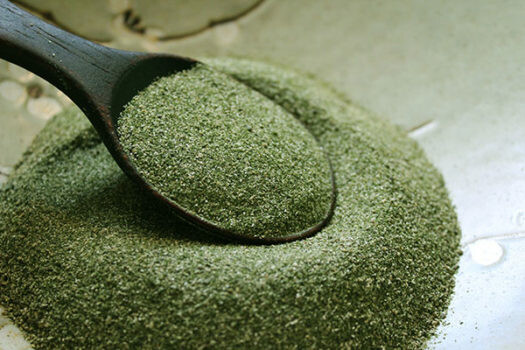
We all know what stress feels like. That feeling of being under pressure, out of control, overwhelmed and unable to cope. It feels like an enormous weight on your shoulders, and whatever you do you just can’t shake it off.
Stress is an overload of either physical and emotional pressure (or sometimes a combination of the two). If left untreated, stress can cause a number of symptoms, some quite severe, that can be both physically and mentally damaging. In fact, the American Institute of Stress estimates that 75 to 90% of all visits to primary care physicians are for stress-related problems.
Mental and emotional stress are often considered the culprits in stress-related problems, but there are also physical stressors. Certainly lifestyle factors, hectic schedules or a busy job can cause stress, but so can other factors like:
- Eating foods that the body is sensitive to or intolerant of (even if you don’t know you have the sensitivity)
- Not getting enough sleep
- Toxins in your home or environment
- An underlying hormone imbalance
Consistently tensed muscles result in headaches, back, neck and shoulder pain. Extreme stress can impair both your digestive and immune systems. An immune system that is malfunctioning can cause you to be more susceptible to infection, slow wound healing, bring on bouts of eczema or hives and of course, acne. High stress levels also increase the production of cortisol which is responsible for much of the weight gain around the abdomen, especially in women. Cortisol will produce more blood sugar when the liver is triggered by stress hormones, resulting in hyperglycemia.
The Body’s Response To Stress
Some level of stress is a part of normal modern life. Short term stress that is controlled can serve a very useful purpose by motivating us to lead more productive and creative lives. However, chronic stress, such as unrelenting financial worries, job-related pressures, family issues, etc., have a negative effect on your health and result in the depletion of trace minerals and vitamins that are necessary. Without these energy producing vitamins and minerals the ability to cope with stress decreases and a cycle of declining health begins.
The body reacts in a variety of ways, depending on the stress and how long it lasts. The stress response system is subconscious; it responds to stimuli and nothing else. Emotional, physical, financial, relationship stress – the body does not differentiate between these sources; and everyone reacts differently due to bio-individuality.
By balancing the body chemistry, you can actually eliminate fatigue and reverse aging.
One line of defense against stress is a rise in cholesterol. Cholesterol is the raw material used to synthesize the adrenal cortical hormones. These are the hormones that prevent the body from being overwhelmed by stress, so under certain circumstances, a high blood cholesterol is not a mistake but is an indication of adrenal stress. The body is trying to force an increase in anti-stress hormones by flooding the exhausted adrenal glands with more raw materials, so cholesterol accumulates in the tissues because of the body’s inability to cope with long term stress.
While cholesterol is one form of defense against stress, the parts of your body that work the hardest to combat it are the adrenal gland and the thyroid gland. These two little powerhouses control the majority of hormone activity in your body, so when one or both of them are not functioning correctly, your body chemistry will be out of balance.
The Stages Of Stress
The body reacts to stress by mobilizing all of its available energy. If adequate levels of energy are present to overcome the stress, health and well-being are restored. However, if the body cannot produce enough energy to overcome the stress, it automatically reacts with a general adaptation syndrome consisting of three distinct stages.
Hans Selye, MD identified these stages as the alarm stage, the resistance stage and the exhaustion stage. The Stress Theory of Disease states that the body passes through these three stages as it comes under prolonged stress and each stage has a particular biochemistry with specific conditions. You could experience all three stages in a short amount of time, or it could take many years to reach the exhaustion stage.
Alarm Stage
The alarm stage is often considered an early stage of stress in which the body has adequate energy to fight back against it. The body reacts to acute stress by releasing hormones produced by the adrenal glands. People in this stage are in the “fight or flight” mode too often as a response to some kind of stressor. These short bursts of adrenaline are designed to give your body the energy it needs to flee from danger or to stand your ground and fight it, but when faced with repeated stressors that cause the adrenals to fire, they have to work harder and harder each time.
People in this stage may tend to be anxious, irritable and aggressive, as well as somewhat emotional and short-tempered. They may often complain of feeling “wired but tired.” It often shows up as higher blood pressure and blood sugar, higher body temperature, and more frequent bowel movements.
The alarm stage of stress is generally shown as fast oxidation on a hair mineral analysis. The ratio of calcium/potassium and sodium/magnesium levels are measured; the calcium and magnesium levels always drop in the initial stages of stress. More adrenal activity results in a higher level of sodium and potassium.
Resistance Stage
The resistance stage of stress comes about when the body is under continual stress and is getting tired. Because it has been working so hard to keep you going, it no longer has enough energy reserves to function correctly so it lapses to an unhealthy parasympathetic state. Normally, the parasympathetic state is where you want to be, but in this case, the body begins to shut down adrenal and thyroid function in order to use that energy someplace else in the body.
Common complaints from people in this stage include a general feeling of being unwell, a lack of enthusiasm, regular infections and low sex drive. This stage can last for long periods of time in an effort to minimize the stress. The body still has some energy reserves, but less that what is available in the alarm stage.
The resistance stage is typically characterized by a mixed oxidation pattern, or a fast oxidation pattern with a low sodium to potassium ratio. The calcium/potassium ratio has more to do with thyroid activity, while the sodium/magnesium ratio indicates adrenal activity.
Exhaustion Stage
The exhaustion stage of stress occurs when you have been dealing with chronic, unrelenting stress for too long and your adrenals are literally “burned out.” In this stage, the body has exhausted its energy reserves in an attempt to contain the stress and is now in a holding pattern to prevent a further decline in health. The most common manifestation of this condition is chronic fatigue, which is probably the most universal complaint in our society as a whole. In fact, this is the most common stage of stress that I see with my clients.
You want to go, but your body says stop. Symptoms may include fatigue, depression, apathy, despair, constipation, dry skin and hair. As a result, you feel always tired and ill because the over stimulation inhibits the activity of the immune system, digestive system, elimination system and vital organs and systems needed for health.
The exhaustion stage of stress typically corresponds to a very slow oxidation rate. A common situation found in slow oxidizers is called sympathetic dominance, which is an imbalance of the autonomic nervous system. The body is still attempting to use the sympathetic system but it is exhausted and simply cannot respond strongly.
What Can You Do?
It goes without saying that reducing the things in your life that are causing you stress is the first place to start. However, that alone won’t restore your body to health, especially if you have been stressed out for a long time. Eating nutrient dense foods, along with proper supplementation, will begin to re-balance your body chemistry; and these are key factors to returning your body to a healthier state.
Is it time to learn your oxidation rate and the stage of stress you are in? One of the best ways to determine this is with a hair tissue mineral analysis. This test looks at many factors but in particular measures mineral ratios which will also indicate the stage of stress your body is in. Based on the lab results, we can provide a personalized road map for your journey back to health. I would love to be able to help you understand how stress has affected you physically and help you begin to repair the damage.
I invite you to Schedule a complimentary call today to discuss working together.
Disclaimer: The information contained herein is not to be construed as medical advice and is not intended to diagnose, treat, or cure any medical condition. These statements made have not been approved by the FDA, nor should they be taken as a substitute for medical advice from a licensed physician.
Affiliate Links: Some links on my website and emails are affiliate links. Should you click on these links and decide to purchase anything, I will receive a small commission and you will have my sincere thanks for supporting Tina’s Healthy Living.












